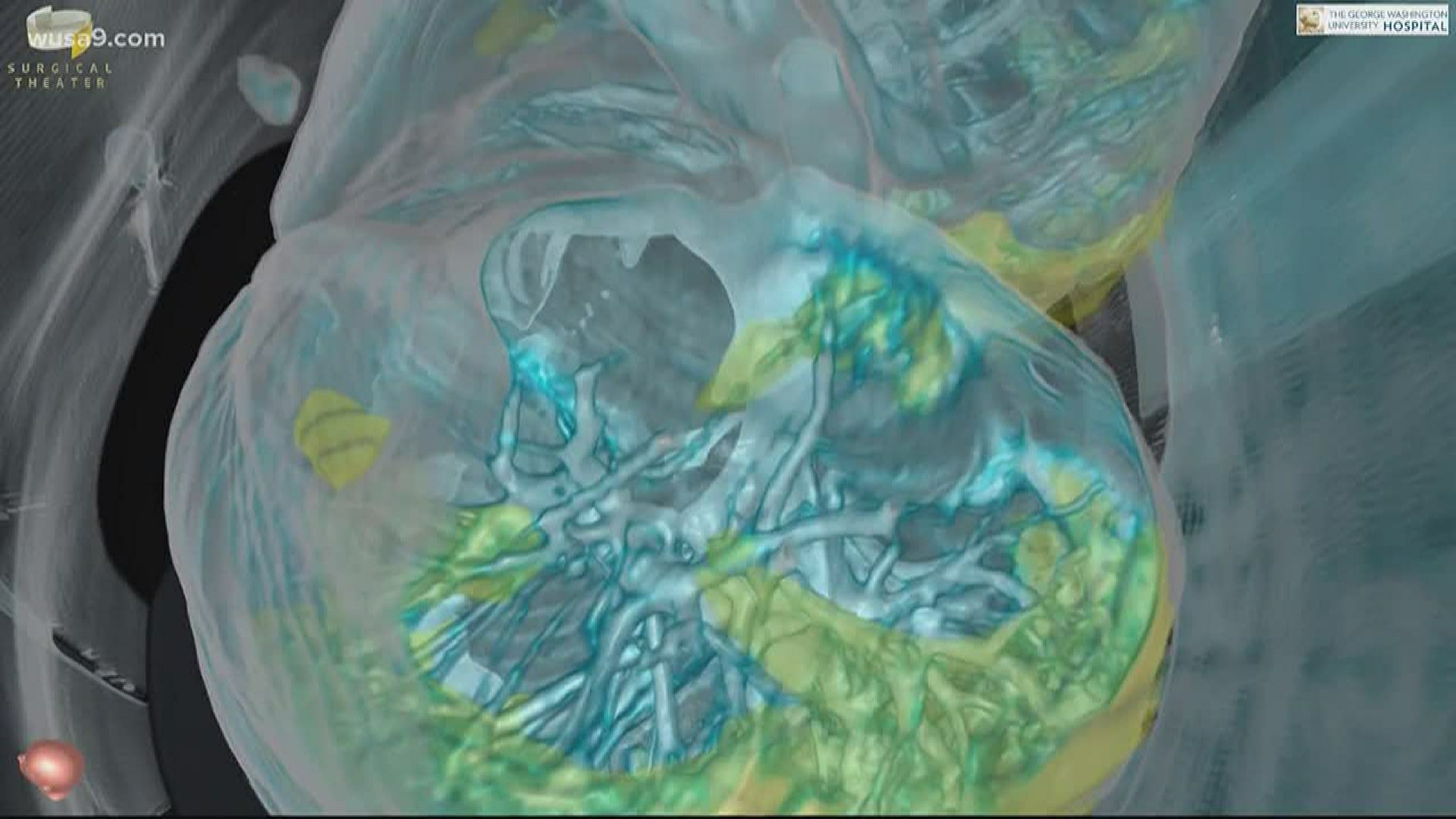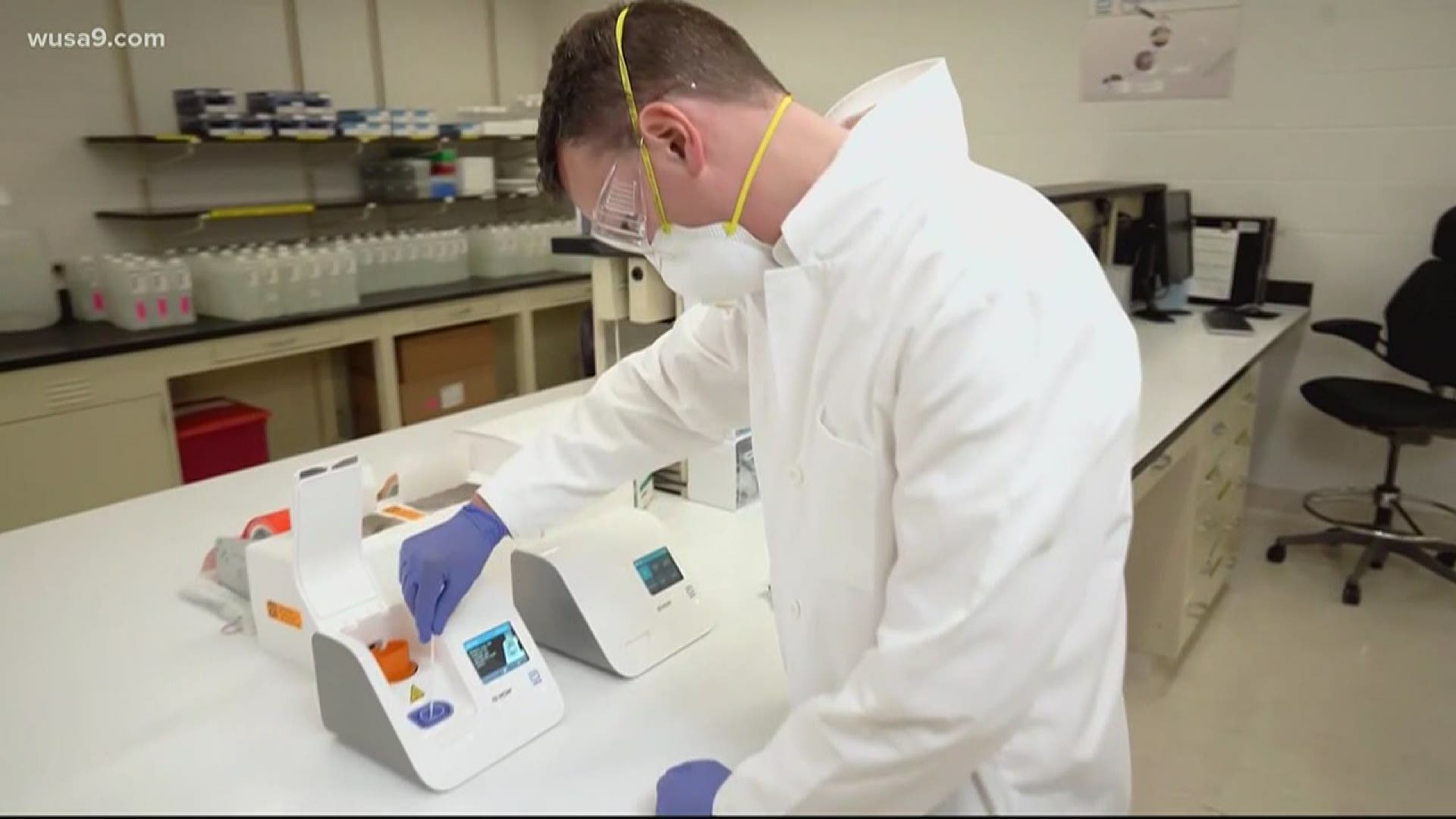WASHINGTON — In the absence of a coronavirus vaccine and without any definite time table as to whether one will become available, researchers are trying to find ways to other ways treat the virus once a person has contracted it.
University of Maryland researchers will look at the blood of the survivors of the coronavirus. They believe that could shorten hospital stays and even save lives.
The worst-case scenario once a coronavirus patient enters the Intensive Care Unit is the lungs become inflamed, Dr. Magali Fontaine, a University of Maryland Pathologist explained.
"The inflammation is trying to control the virus that can also, as it progresses, destroy the lungs," Fontaine said.
In the middle of this pandemic, Fontaine and her team research different treatments for COVID-19, starting with the blood plasma transfusions.
"The plasma that is collected from patients who have recovered from COVID-19, contains antibodies that can protect patients that are now hospitalized," she said.
To understand that, you start with the blood plasma. It’s basically what is left in your blood after you remove the red and white blood cells and some material.
RELATED: What is an antibody test?
In recovered patients blood plasma has antibodies, which are proteins that can fight off the COVID-19 infection.
"That could possibly shorten the stay in the ICU reduce time on ventilators," Fontaine said.
A transfusion of recovered plasma could possibly save lives. That is why this month Fontaine and her research team began research.
"So we are actually collecting donors today and identifying patients in the ICU who would benefit from these products," she explained.
A similar treatment was used for SARS patients back in 2005.


